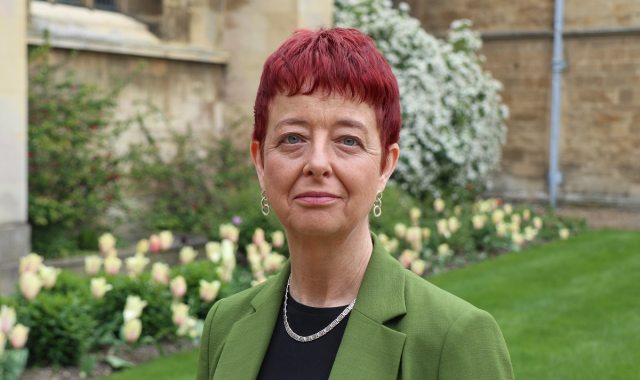New exhibition gets to heart of Harvey's revolutionary discovery
- 30 January 2018
- 2 minutes
The life, work, and legacy of the revolutionary anatomist William Harvey, the Caian physician who revealed the secrets of blood circulation, is explored in a new exhibition at the museum of the Royal College of Physicians.
One of the highlights of the Royal College’s 500th anniversary celebrations, the exhibition - “Ceaseless motion: William Harvey’s experiments in circulation” - explores the physician’s ground-breaking achievements.
Harvey, born in 1578 and living through an extraordinary age of scientific revolution, studied at Caius before moving to the University of Padua to complete his medical studies. Developing an insatiable curiosity about the inner workings of all living creatures, he conducted countless experiments within his own London home, observing the beating hearts of dogs, eels, crows, and even wasps. He was also able, as an anatomist, to dissect the bodies of hanged men, in the RCP’s anatomy theatre.
In 1628, after ten years of painstaking solitary research, Harvey published his discovery in a book known as De motu cordis. His idea, that blood is pumped around the body by the heart in a state of ceaseless motion, proved highly controversial to some, challenging 1500 years of established scientific and medical belief.
The then-conventional view, enshrined for over 1,500 years since the time of the Greek physician Galen, held that there were two separate venous systems: “nutritive blood”, made in the liver and carried slowly around the body in veins, and “vital blood”, concocted in the heart with air drawn in from lungs by the heartbeat and then distributed through arteries.
Demonstrating his own theory that the heart pumped the blood through the body in a unified circulatory system of arteries and veins, Harvey shocked his audience in an anatomical theatre as he cut open the thorax of a live dog to expose the fountain of blood emitted by the beating heart.
A recent biography of Harvey by the historian Thomas Wright, the Wellcome Trust Book Prize-winning In Circulation: William Harvey’s Revolutionary Idea, argues that the physician had more impact on the history of science than any other Englishman apart from Newton and Darwin.
Harvey encouraged his fellow physicians ‘to search and study out the secrets of nature by way of experiment’. His legacy of curiosity, research and discovery has had a lasting impact on the practice and science of medicine. This exhibition places William Harvey at the heart of the RCP as it celebrates its 500th anniversary.
* The free exhibition runs until 26 July at the Royal College of Physicians, 11 St Andrews Place, London NW1 4LE. Find out more here.


